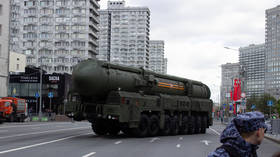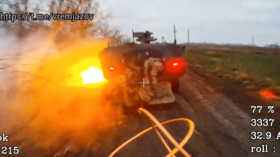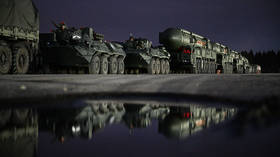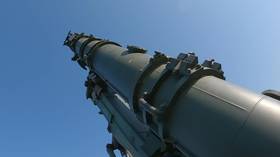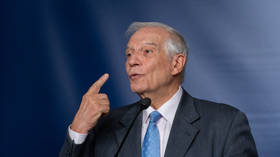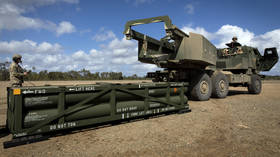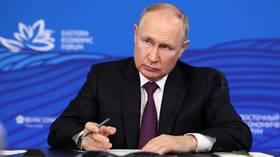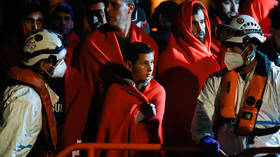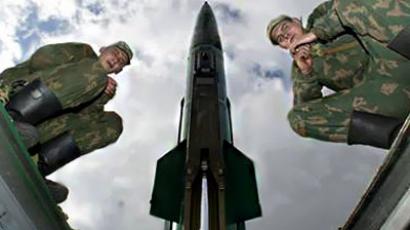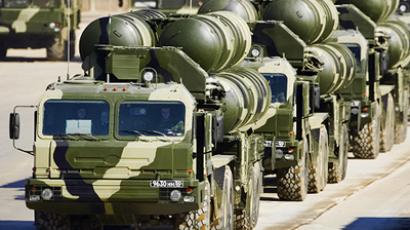Cooperation on missile defense trumps confrontation – Russian defense chief
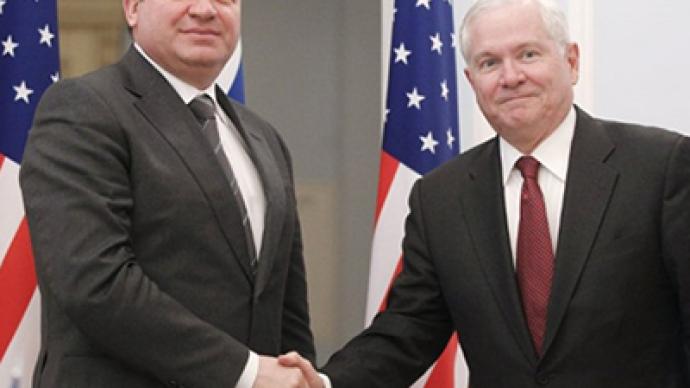
US Defense Secretary Robert Gates is in the Russian capital for discussions on how Moscow and Washington can come to a workable agreement on Euro missile defense, which Russia views as a potential security risk.
The lingering debate over a US-built missile defense system for Eastern Europe, ostensibly for protecting US allies from a rogue missile attack, continues to be the biggest obstacle for achieving a lasting “reset” between Russia and the United States.Russia, which has serious misgivings about such sophisticated technology in its immediate neighborhood, is requesting full participation in the project. Thus far, Washington has only offered vague promises.Speaking with reporters following a meeting with his American counterpart, Russian Defense Minister Anatoly Serdyukov said cooperation on missile defense would be beneficial for both Moscow and Washington.“There is an understanding that cooperation is better than confrontation,” Serdyukov said, as quoted by Interfax. “Discussions will continue between experts and, of course, within the specialized working group." After the Obama Administration “shelved” his predecessor’s plan to build a missile defense shield in Poland and the Czech Republic – which was strongly opposed by Moscow – the North Atlantic alliance came up with an idea to create the so-called Euro missile defense system. Russia was invited by NATO to cooperate in the project, yet the exact nature of that cooperation remains a sticking point between Moscow and Washington. While NATO insists there should be two independent systems that could exchange information, Russia said it would only participate in the program as an equal partner. Trying to find a compromise on the issue was one of the key points of Tuesday’s meeting between Serdyukov and Gates. "It is one of those issues that neither we, nor our American colleagues have simple and unequivocal answers to," the minister said. "New opportunities for (missile defense) cooperation emerged" after the NATO-Russia Council summit in Lisbon, he said.In addition to missile defense, Gates and Serdyukov also discussed the situation in Afghanistan, the implementation of the New Strategic Arms Reduction Treaty (START) and the events in Libya – where the NATO-led military campaign against Muammar Gaddafi is in full swing. Speaking after the meeting with his American counterpart, Serdyukov reiterated Russia’s stance on the conflict in the North African state – the violence should be stopped. He pointed out that as a result of “actual hostilities” that were launched in Libya many civil facilities were damaged and people were killed. “That should not have been allowed. And we brought our position to our American colleagues’ notice,” Serdyukov said. “Russia urges all the sides to the conflict to do everything possible to stop the violence. We are convinced that an immediate ceasefire and the start of dialogue is the shortest way to reliably ensure the security of civilians.”Gates, for his part, assured that the intensity of the allied campaign in Libya will decrease within the next several days. The Pentagon chief said that the coalition activities fully comply with the UN Security Council resolution 1973 on Libya and are aimed at establishing a no-fly zone over the state as well as the protection of civilians. Gates, who agreed with Serdyukov that it is up to the Libyan people to decide their future, added that the coalition forces are doing everything possible to avoid casualties among civilians. As for the situation in Afghanistan, the Russian side welcomed the success of the NATO-led coalition forces and the stabilization of the situation in the Islamic Republic."Our positions on Afghanistan coincide in many areas. Russia is interested in the stabilization of the situation in the region and in the success of the coalition forces [there]," Serdyukov said, as quoted by RIA Novosti.Later on Tuesday, the Pentagon chief will hold talks with President Dmitry Medvedev.Gates was initially scheduled to arrive in Russia on Sunday, but his visit was postponed until Monday due to the events in Libya.Before visiting Moscow, Gates spent a day in Russia’s northern capital – St. Petersburg – where he delivered a speech to mid-level naval officers from the Kuznetsov Naval Academy. He stated that the two nations are “no longer enemies,” and added that “we began to look for ways in which we could cooperate and be partners.”In an interview with Interfax agency, the Pentagon chief pointed out that the progress in the relations between the two powers has been marked, first of all, “bilaterally by our ratification of the New Start Agreement”."I would say that since the end of the Cold War there've been some periodic problems, but overall the direction of the relationship has been towards closer partnership, closer working together," Gates told Interfax on Monday.This might be Gates’ final trip to Russia – at least as Secretary of Defense – as he is expected to retire this year. Commenting to Interfax on whether this is the case, he noted with a smile: “possibly”.


